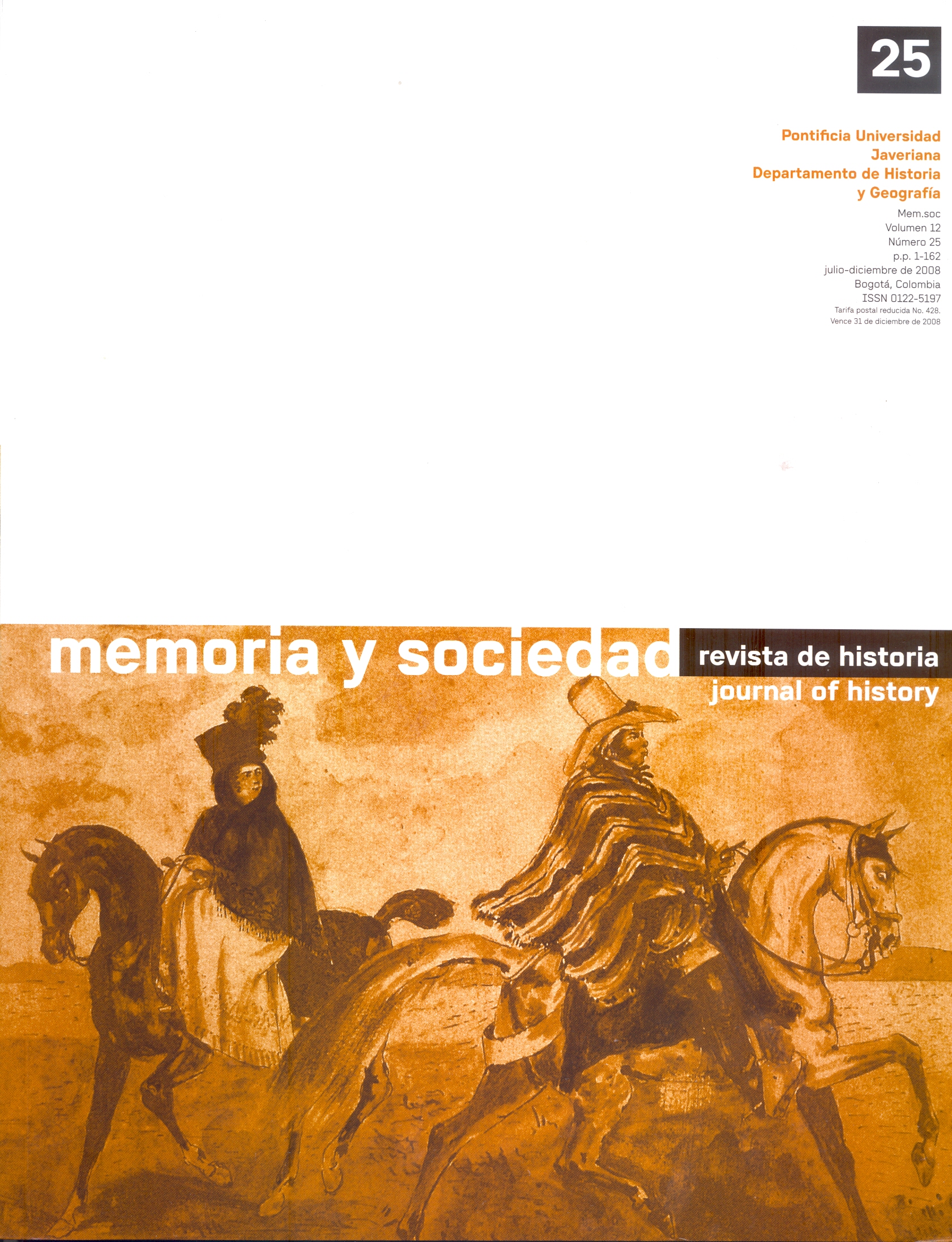Abstract
During the seventies years the appropriation’s phenomenon of the international youth culture raised in Colombia by the local youth. Multiples musical bands of rock grew up in Bogotá committed with the rescue of traditional and folkloric values of the country. This project motivates the search for the Andean and Caribbean rhythms, the learning of new sonorities and instruments, and the change of their whole way of life. However, the cultural history of this years has remain in the historiographic forgetfulness because the youth of this period did not generated the commercial and advertising impact that did generated the subcultures of the sixties and eighties. Although this was a really short period, it left the most important musical legacy appeared in Latin America during the second half of the twenty century: the Latinoamericanism. Taking into account the lyrics, the concert’s images, the personal photos and more diverse iconological resources, the pretention is to understand the social and political imaginaries of the youth that was confront by many different ideological tendencies. Also the press reports, the interviews and the scarce instrument market are the clue to understand the ideological change of the generations in the sixties and the seventies years. It’s very important to continue exploring the cultural history either in the present or in the distant past without glorifying the period and the artist. The challenge for the social analyst is to find out more primary resources that allow us to understand how the cultural action of the subject are develop in a specific period.The journal Memoria y Sociedad is registered under a Creative Commons Attribution 4.0 International Public License. Thus, this work may be reproduced, distributed, and publicly shared in digital format, as long as the names of the authors and Pontificia Universidad Javeriana are acknowledged. Others are allowed to quote, adapt, transform, auto-archive, republish, and create based on this material, for any purpose (even commercial ones), provided the authorship is duly acknowledged, a link to the original work is provided, and it is specified if changes have been made. Pontificia Universidad Javeriana does not hold the rights of published works and the authors are solely responsible for the contents of their works; they keep the moral, intellectual, privacy, and publicity rights.
Approving the intervention of the work (review, copy-editing, translation, layout) and the following outreach, are granted through an use license and not through an assignment of rights. This means the journal and Pontificia Universidad Javeriana cannot be held responsible for any ethical malpractice by the authors. As a consequence of the protection granted by the use license, the journal is not required to publish recantations or modify information already published, unless the errata stems from the editorial management process. Publishing contents in this journal does not generate royalties for contributors.

